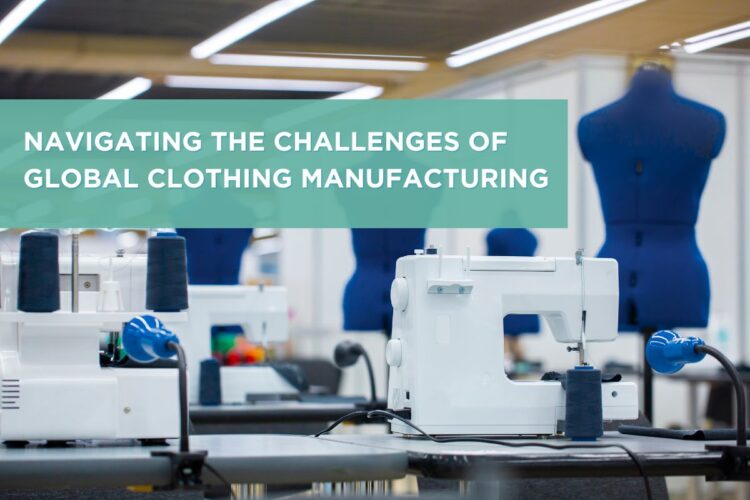The landscape of the fashion industry is constantly evolving, with global clothing manufacturing at the heart of its change. As we navigate the complex maze of international regulations, fast fashion problems, cultural shifts, and environmental concerns, it becomes evident that a strategic approach to these fashion challenges is crucial. Success in this industry necessitates a sound understanding of garment manufacturing and its intricacies.
In the words of the McKinsey report on \’Redesigning Apparel Manufacturing in Asia,\’ resilience is the linchpin for sustainability in the fast-paced, ever-demanding world of fashion. This resilience stems from the ability to adapt to changes swiftly and sustainably, a capability that becomes significant when dealing with clothing factories scattered around the globe. Here are some crucial tips for successfully navigating these complexities:
- Fostering Sustainable Practices:
Fast fashion, with its negative environmental impacts, poses one of the most pressing challenges in the fashion industry. As the sector evolves, implementing environmentally friendly and sustainable processes becomes not only a moral responsibility but also a business imperative. Firms need to explore sustainable fabrics, recycle materials, and create more energy-efficient production lines to mitigate these fast fashion problems. Incorporating sustainable practices in cloth manufacturing can contribute to brand value and customer loyalty, making it a win-win situation.
- Building Strong Relationships with Factories:
A successful clothing manufacturer recognizes the value of building strong relationships with factories. These relationships are pivotal to ensuring the quality and timely delivery of products. By nurturing these connections, manufacturers can gain insights into the day-to-day operations, ensuring transparency and accountability. Countries like India, known for having some of the best garment manufacturers globally, can be strategic partners in this endeavor.
- Implementing Advanced Technologies:
Industrial fashion is no longer just about machines and assembly lines. It has transcended these boundaries, with the incorporation of advanced technologies such as artificial intelligence, 3D printing, and IoT. These technologies can aid in streamlining operations, reducing wastage, enhancing product quality, and increasing production speed. Therefore, embracing technological advancements is a strategic move in navigating the challenges of garment manufacturing.
- Managing Supply Chain:
Effective supply chain management is at the core of global clothing manufacturing. This involves everything from sourcing raw materials, coordinating with clothing factories, managing logistics, to reaching the end consumer. Successful companies keep a close eye on each stage of the supply chain, identifying potential bottlenecks and swiftly addressing them. Investing in advanced supply chain management solutions can drastically improve efficiency and resilience.
- Cultural Sensitivity and Compliance:
Working across borders means dealing with a variety of cultural norms and regulations. It\’s crucial to demonstrate respect and sensitivity towards the local culture to build strong relationships with suppliers, manufacturers, and customers. Similarly, compliance with local and international laws is paramount. Non-compliance can lead to fines, damaged reputation, or even business closure.
- Prioritizing Workers’ Rights and Welfare:
Garment manufacturing often becomes a spotlight for workers\’ rights issues. Ensuring fair wages, safe working conditions, and respectful treatment is not only ethical but also crucial for business success. A satisfied workforce is more productive and loyal, contributing to the overall health of the business.
- Constant Quality Checks:
To ensure the product meets the desired standards, regular quality checks are a must. From the quality of raw materials to the final product, each step should be scrutinized thoroughly. High-quality products enhance brand reputation and customer satisfaction, leading to long-term business success.
As we continue to traverse the terrain of global clothing manufacturing, these strategies can guide us towards success. By fostering sustainability, building strong relationships with factories, embracing advanced technologies, managing the supply chain efficiently, demonstrating cultural sensitivity, prioritizing workers\’ rights, and ensuring constant quality checks, we can rise above the prevalent fashion challenges. Notably, engaging with best garment manufacturers in India such as The ODD Factory, can be instrumental in this global endeavor. These manufacturers have proven their capabilities in delivering quality products while adhering to high standards of business ethics and sustainability. The road ahead may be challenging, but with resilience and strategic planning, success is certainly achievable



